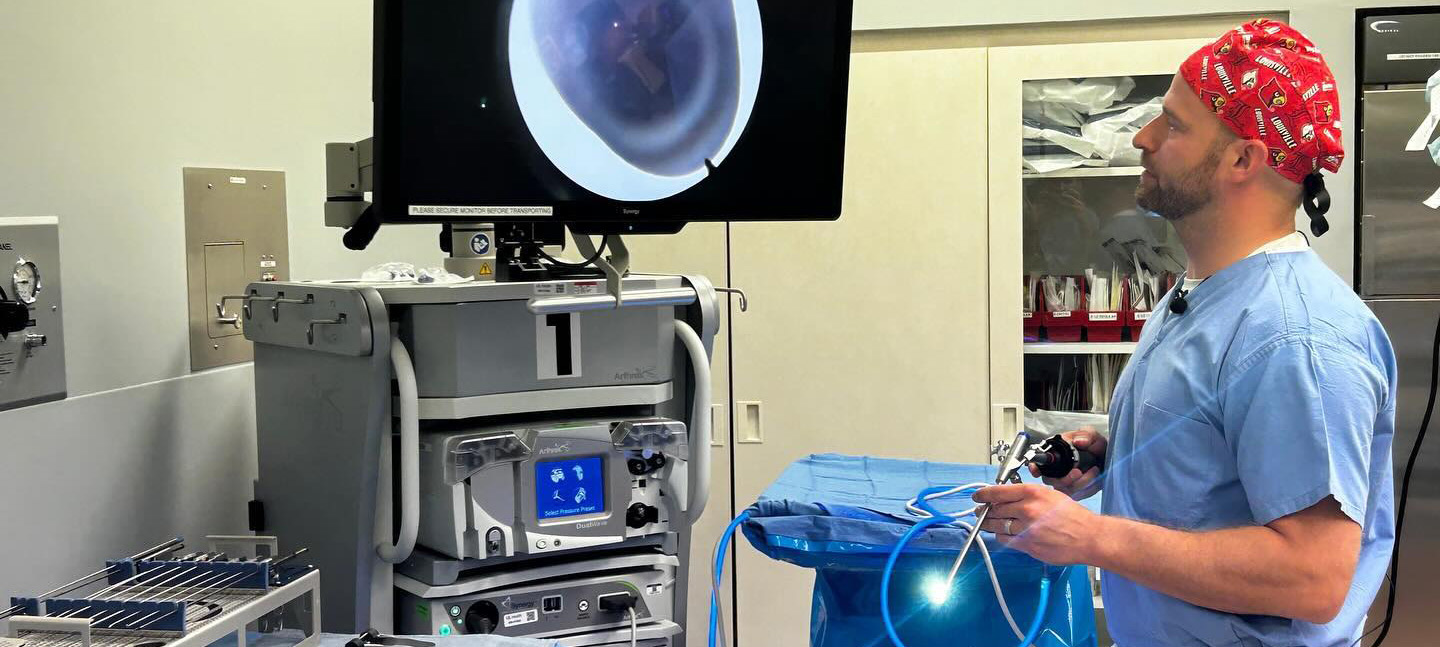Certification Courses
Advanced Trauma Life Support (ATLS) - this course teaches how to assess a patient’s condition, resuscitate and stabilize the patient and determine if a patient’s needs exceed a facility’s capacity. It also covers how to arrange for a patient’s inter-hospital transfer and ensure that optimum care is provided throughout the process. UofL Hospital provides a cadaver lab for the surgical skills portion of the class which has been extremely well received.
Advanced Burn Life Support (ABLS) - provides guidelines in the assessment and management of burn patients from the scene of the burn injury through the first 24 hours after injury. The courses are open to MDs, RNs, LPNs, physician assistants, nurse practitioners, therapists and paramedics, fire service and other emergency care personnel.
TNCC (Trauma Nursing Core Course) – Emergency Nurses Association developed this course to establish a standardized body of trauma nursing knowledge. It combines interactive learning with scenario-based assessments to give nurses a comprehensive learning experience.
RTTDC (Rural Trauma Team Development Course) – this course emphasizes a team approach to the initial evaluation and resuscitation of the trauma patient at a rural facility. With more than 60 percent of the country’s trauma deaths occurring in rural areas, the course assists rural health care professionals in determining the need to transfer the patient to a higher level of care. The intended audience includes physicians, nurse practitioners, physician assistants, nurses, pre-hospital personnel, technicians and administrative support personnel.
Questions? Please contact:
Tracie Burchett, MSN, RN, TCRN
Trauma Outreach and Education Coordinator
502-562-7080
Tracie.Burchett@UofLHealth.org
ACS Verification
UofL Hospital Re-Verified as a Level I Trauma Center by the American College of Surgeons
UofL Hospital’s Trauma Center is verified as a Level I Trauma Center by the Verification Review Committee (VRC), an ad hoc committee of the Committee on Trauma (COT) of the American College of Surgeons (ACS). This achievement recognizes University Hospital’s dedication to providing optimal care for injured patients. Established by the American College of Surgeons in 1987, the COT’s Consultation/Verification Program for Hospitals promotes the development of trauma centers in which participants provide not only the hospital resources necessary for trauma care but also the entire spectrum of care to address the needs of all injured patients. This spectrum encompasses the pre-hospital phase through the rehabilitation process.
Verified trauma centers must meet the essential criteria that ensure trauma care capability and institutional performance, as outlined by the American College of Surgeons Committee on Trauma in its current Resources for Optimal Care of the Injured Patient manual.
The ACS Committee on Trauma’s verification program does not designate trauma centers. Rather, the program provides confirmation that a trauma center has demonstrated its commitment to providing the highest quality trauma care for all injured patients. The actual establishment and the designation of trauma centers is the function of local, regional, or state health care systems agencies.
Research to Improve Patient Care
Our Trauma Center is always looking to improve outcomes using evidence-based practices. These best practices are the results of identifying areas of research or performance improvement from direct patient care experiences. Many of our performance improvement projects develop into research studies that will ultimately improve patient outcomes. This collaborative research project has been selected for poster presentation at the American Association for the Surgery of Trauma’s Annual Meeting.
Patients who undergo splenectomies during trauma care are at life-long risk for developing episodes of rapidly progressive septicemia, known as overwhelming post-splenectomy sepsis (OPSS). In an effort to reduce these risks, splenectomy patients are recommended to receive vaccinations against pneumococci, meningococci, Haemophilus influenzae type b and influenza virus. Patients should also be placed on an appropriate re-vaccination schedule and be educated regarding the importance of fever or infectious symptoms given their asplenia. Patients at UofL Hospital are routinely administered vaccines prior to discharge and provided with appropriate education regarding the risks of post-splenectomy infection. This includes a formal conversation from a trauma practitioner, as well as written information provided at discharge. However, since most patients do not follow up with their trauma providers beyond their initial period of injury convalescence, little is known about compliance in regards to post-splenectomy risk reduction over time. Despite uniform education prior to discharge, most patients undergoing splenectomy for trauma at our institution were unaware of the risks of OPSS and did not follow our recommended guidelines for risk reduction. Though OPSS is rare, it carries significant mortality. Further research targeting methods to improve compliance with recommendations is indicated.





